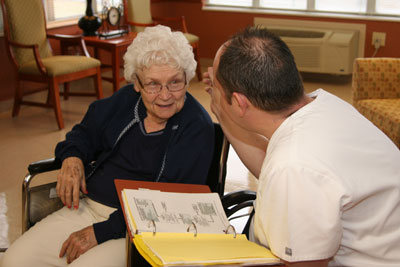Introduction to Gerontology (18 day - 6 modules certificate course)
FETAC Gerontology Component Certificate Level 6
The purpose of this module is to provide candidates with insight into the principles of gerontology and the knowledge and skills necessary to put those principles into practice. In addition, candidates will develop sufficient understanding to enable them identify the practical benefits that will emerge from the proper and consistent application of these principles. Candidates who successfully complete the Gerontology module will have a clear and informed view on the appropriate structures, roles, responsibilities and supporting process required in gerontology. Gerontology is a mandatory module for the Advanced Certificate in Community Care FETAC Level 6 Award.
Pre-requisites
This Gerontology course is open to all with general work/life experience. Participants should be in occupational roles sufficient to allow them reflect upon the practical implications of gerontology knowledge and skills. It is a suitable course for those with a significant professional interest in areas such as Health Care and Community Care.
 Course Aim
Course Aim
This Gerontology course is designed to provide a broad introduction to the study of ageing for those currently working in or planning to work with older people. Specifically participants will:
- Acquire an initial understanding of the normal and pathological changes in adulthood.
- Become more aware of personal and societal attitudes toward old age and older people.
- Identify relevant legislation, community resources, care programmes and institutions for older people.
- Understand more fully the issues related to successful ageing.
- Understand that Gerontology is both a multi and interdisciplinary study of ageing and older people.
Principal Areas of Study
Physiological and Psychological Changes Associated with Old Age
- Outline the major theories of adult development and ageing discuss various biological theories of ageing.
- Identify specific physical changes in regard to the following systems: visual; auditory; musculature; cardio-pulmonary; skeletal; etc.
- Recognise factors that contribute to physical decline.
- Identify factors that promote physical well-being.
- Understand a range of normal and pathological conditions associated with old age to include: osteoporosis; dementias, incontinence; night blindness; hyper and hypo-tension; heart disease; etc.
- Describe common age-related psychological changes.
- Discuss a range of mental health issues associated with old age.
 Western Society’s Response to Old
Western Society’s Response to Old
- Describe the demographic changes influencing perceptions of old age.
- Research the historical views of older people in irish culture as seen in myths, songs and writings.
- Rationalise the Irish/EU definition of old age.
- Contrast the traditional views and emerging ideas of old age in Irish culture.
- Describe how stereotypes surrounding old age are developed and perpetuated.
- Uncover one’s own bias and/or attitudes toward older people and ageing.
- Describe the sociological aspects of ageing to include: role transition; family life; spirituality; employment.
- Explore the issues associated with an ageing society to include: economics; governmental policy; housing; healthcare.
Legislation and Organisations in Support of Older People
- Identify the range of legal entitlements available to older Irish citizens.
- Identify a selection of governmental departments and the services they offer to older people.
- Create a list of local and national organisations that provide services to, or work on behalf of older people.
- List a range of professionals and the services they might provide to older people and/or their families.
- Explore how long-term care establishments can better meet the needs of clients and their families.
- Illustrate the difficulties of introducing change to care facilities.
- Discuss alternatives to long-term institutional care.
- Outline a range of innovative programmes from around the globe and how they respond to common age-related problems.
Successful Ageing
- Recognise that ageing is a life- long process.
- Demonstrate that for most people ageing is a stage of growth, discovery and opportunity.
- Outline common response to changes/transitions in life.
- Identify the skills that enhance one’s ability to cope with change.
- Describe how you might prepare yourself to adjust to age-related changes.
- Discuss the importance of cultivating loving relationships throughout life.
- Discuss the importance of maintaining emotional supports as one ages.
- Describe the seven stages of healthy adult development to secure a successful old age.
- Distinguish between healthy and unhealthy coping mechanisms to address death and dying.
Assessment
A combination of appropriate assessment procedures will facilitate the assessment of learning outcomes of the course.
- Project 60%
- Learning Record 40%
Awards
Participants will gain a FETAC credit in Gerontology at FETAC Level 6. It is a mandatory module for the Advanced Certificate in Community Care.
